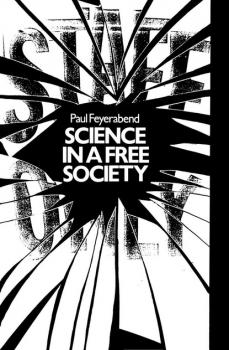Paul Feyerabend K.
Список книг автора Paul Feyerabend K.Philosophy of Nature
Philosopher, physicist, and anarchist Paul Feyerabend was one of the most unconventional scholars of his time. His book Against Method has become a modern classic. Yet it is not well known that Feyerabend spent many years working on a philosophy of nature that was intended to comprise three volumes covering the period from the earliest traces of stone age cave paintings to the atomic physics of the 20th century Ð a project that, as he conveyed in a letter to Imre Lakatos, almost drove him nuts: “Damn the ,Naturphilosophie.” The book’s manuscript was long believed to have been lost. Recently, however, a typescript constituting the first volume of the project was unexpectedly discovered at the University of Konstanz. In this volume Feyerabend explores the significance of myths for the early period of natural philosophy, as well as the transition from Homer’s “aggregate universe” to Parmenides’ uniform ontology. He focuses on the rise of rationalism in Greek antiquity, which he considers a disastrous development, and the associated separation of man from nature. Thus Feyerabend explores the prehistory of science in his familiar polemical and extraordinarily learned manner. The volume contains numerous pictures and drawings by Feyerabend himself. It also contains hitherto unpublished biographical material that will help to round up our overall image of one of the most influential radical philosophers of the twentieth century.
Science in a Free Society
No study in the philosophy of science created such controversy in the seventies as Paul Feyerabend’s Against Method. In this work, Feyerabend reviews that controversy, and extends his critique beyond the problem of scientific rules and methods, to the social function and direction of science today. In the first part of the book, he launches a sustained and irreverent attack on the prestige of science in the West. The lofty authority of the “expert” claimed by scientists is, he argues, incompatible with any genuine democracy, and often merely serves to conceal entrenched prejudices and divided opinions with the scientific community itself. Feyerabend insists that these can and should be subjected to the arbitration of the lay population, whose closes interests they constantly affect—as struggles over atomic energy programs so powerfully attest. Calling for far greater diversity in the content of education to facilitate democratic decisions over such issues, Feyerabend recounts the origin and development of his own ideas—successively engaged by Brecht, Ehrenhaft, Popper, Mill and Lakatos—in a spirited intellectual self-portrait. Science in a Free Society is a striking intervention into one of the most topical debates in contemporary culture and politics.

